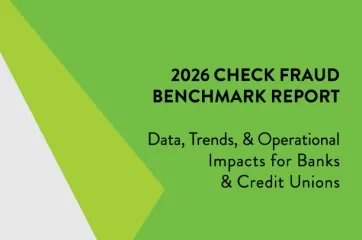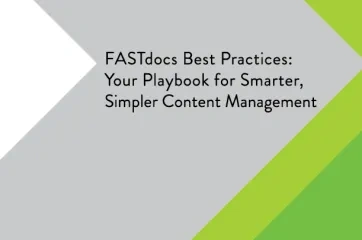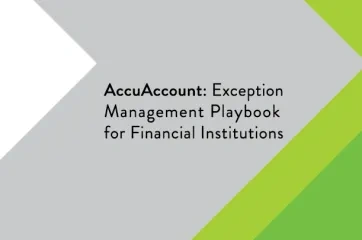A disclosure is a document that makes information known. In the banking industry, it’s a statement provided by a financial institution—to either a consumer or commercial account holder —that outlines all pertinent information. Disclosures are commonly provided to account holders during the establishment of a new account or loan.
Financial Institution Disclosures for Account Holders
Financial institutions are required to issue many different types of disclosures. This is especially true for consumer accounts. Here are a few examples by account-type.
- Checking accounts: Disclosures tell new checking account holders about non-sufficient funds (NSF) fees.
- Deposit accounts: Disclosures inform deposit account holders about interest calculations.
- Mortgages: TILA-RESPA Integrated Disclosures (TRID) mandates two documents to be given to mortgage borrowers. The Loan Estimate makes it easy for the customer or member to shop for the best deal by comparing total loan cost between lenders (including upfront fees and interest rates). This document is presented at application time. The second is the Closing Disclosure, due just prior to closing.
Disclosure Time Frames
Disclosures are often necessary under state or federal banking regulations. As noted above, banks and credit unions are also tasked with providing various information to the customer or member within a certain time period. If information is provided past its specified benchmark, the financial institution is in violation.
In addition to supplying information at account opening, loan application, or closing, other disclosures are required during the course of a loan or life of an account. An example here is a notification to a borrower that he or she has not paid a flood zone insurance premium on a mortgaged property.
Tracking Disclosures
To ensure smooth exams and avoid compliance issues, it is essential that financial institutions keep detailed records to show that disclosures were provided to each customer or member at the appropriate time.
Some disclosures are built in as part of the application process. In other cases, the bank or credit union’s document preparation software may automatically print out disclosures during an account’s opening. Loan disclosures are typically generated through loan origination software; some of these disclosures must be signed and retained, serving as proof that the documents were provided to a borrower.
Storing Disclosure Documentation
Many banks and credit unions use technology to electronically store signed disclosure statements. A digital document storage and tracking system, such as AccuAccount, allows hard copies to be scanned in and easily retrieved while eliminating the need to physically archive the paperwork.
For example, when a loan books to a bank’s core, loan-related information populates in AccuAccount and automatically builds document placeholders for any signed disclosures that still need to be scanned into the system. Administrators can also opt to build future reminders for flood insurance notices and other disclosures required during the life of the loan, thereby ensuring disclosures will be issued at the appropriate time.
Banking Resources
For more document tracking best practices, be sure to check out our extensive resource library with free spreadsheets, whitepapers, videos and eBooks.
Browse our banking definitions page for more terminology.







